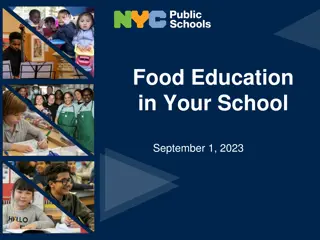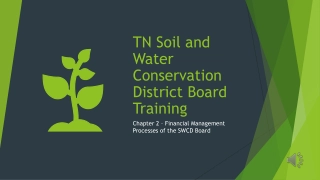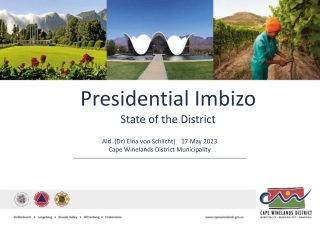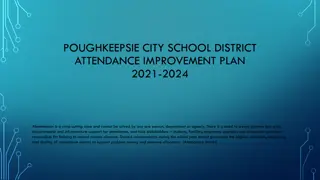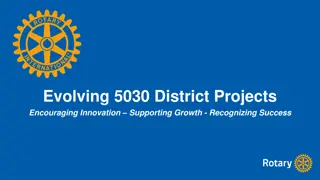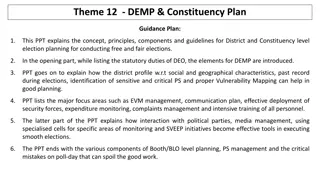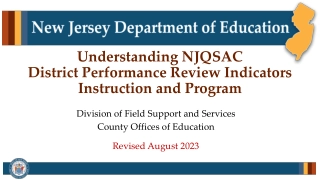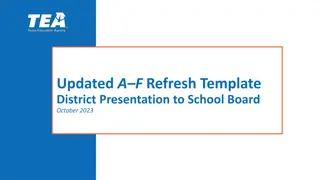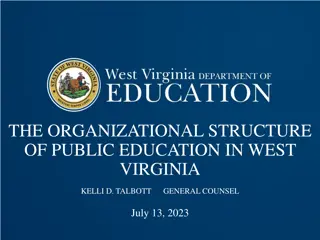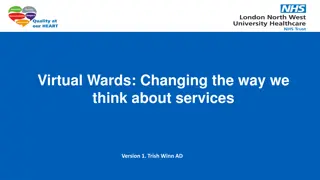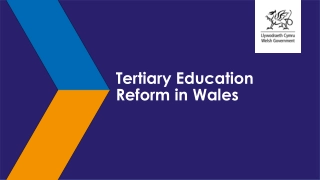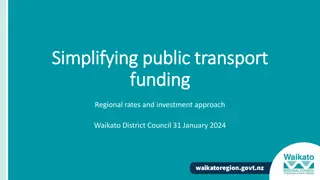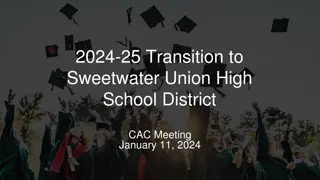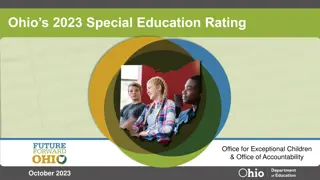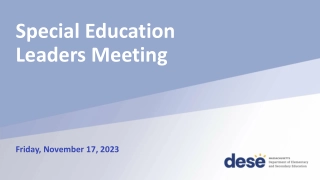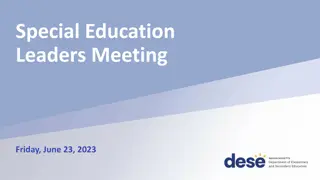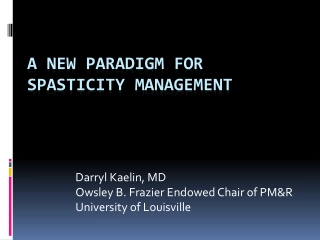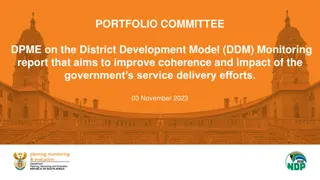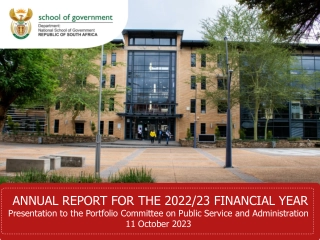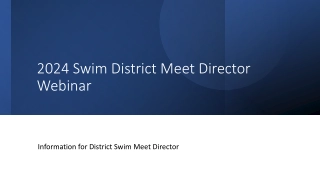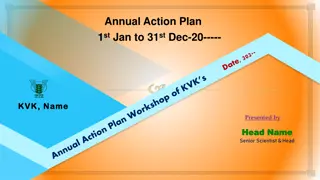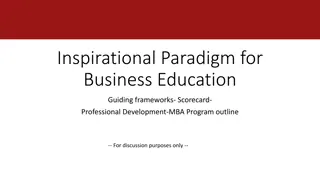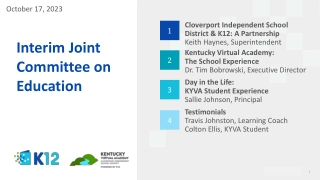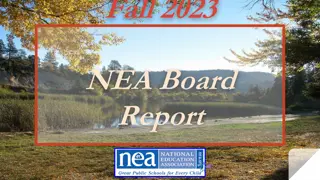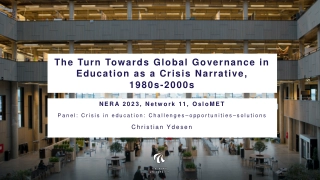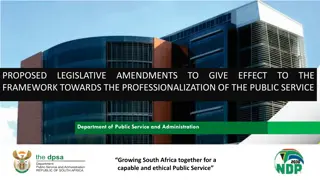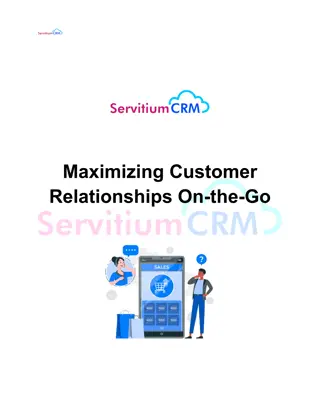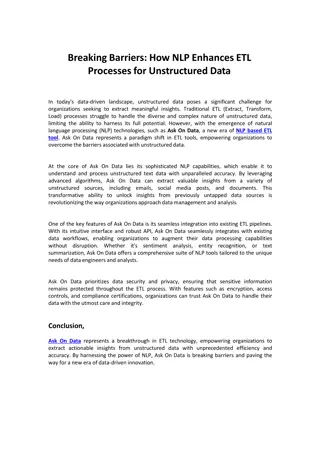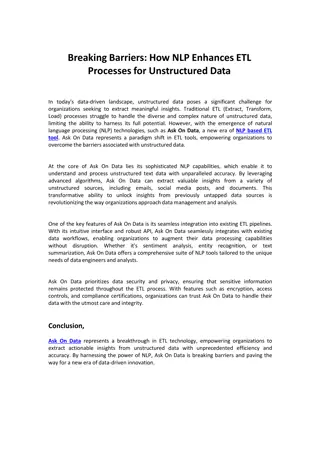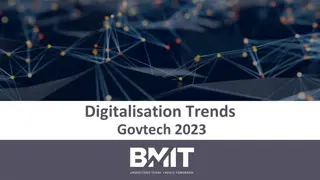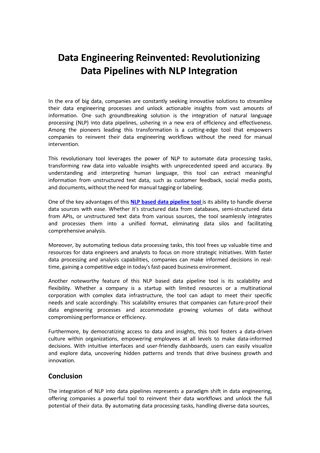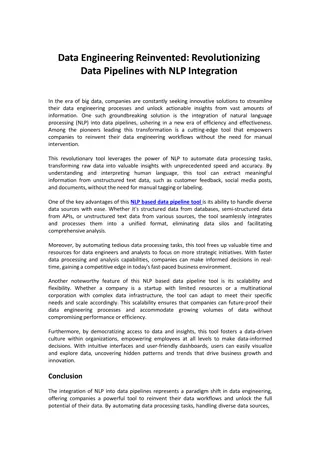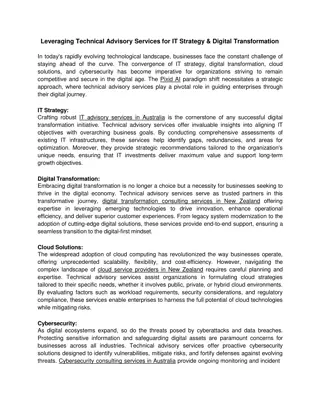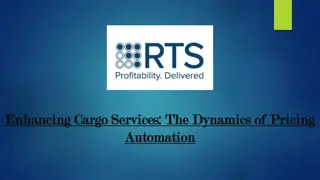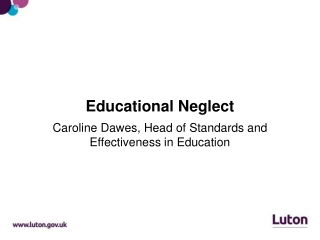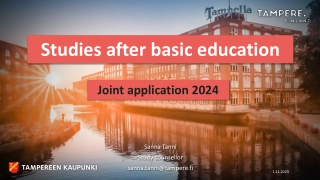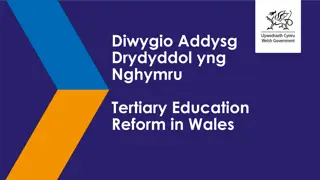Transforming Public Education: A Paradigm Shift for District Leaders
Addressing key issues in public education, the content emphasizes the need for evidence-based strategies, community collaboration, and a focus on student well-being. It highlights the importance of resetting public discourse, supporting educators, and reimagining district leadership in unprecedented times.
Transforming Public Education: A Paradigm Shift for District Leaders
PowerPoint presentation about 'Transforming Public Education: A Paradigm Shift for District Leaders'. This presentation describes the topic on Addressing key issues in public education, the content emphasizes the need for evidence-based strategies, community collaboration, and a focus on student well-being. It highlights the importance of resetting public discourse, supporting educators, and reimagining district leadership in unprecedented times.. Download this presentation absolutely free.
Presentation Transcript
2024 Top Ten Issues 6. Educator Recruitment: A New Paradigm for Districts 1. Resetting the Public Discourse: Rising Above Rhetoric and Division 7. The Superintendent Struggle: Supporting District Leaders through Unprecedented Times 2. Literacy: Building a Strong Foundation 8. The Funding Cliff: Moving Forward After the Money Runs Out 3. Student Mental Health: Adopting a Whole- Community Approach 9. Corporate Connections: Reimagining Delivery of Post- Secondary Training 4. Access to Quality Childcare: Removing Workforce Barriers 10. 1.25 Million More Credentials: How We Reach the North Star 5. Career Pathways: A Demand-Driven Approach
Indicators for Success: Where is Georgia Today? Early Education Enrollment Career Pathway Performance Children in Poverty High School Graduation Rate 4th Grade NAEP Reading Post-Secondary Readiness 8th Grade NAEP Math Adults Degree Attainment
Identifying the Problem Growing partisan divide on the purpose of public education, what content is appropriate, and the level of influence parents should have over curriculum and instruction Infighting among adults discourages the pursuit of community-driven solutions Rhetoric and division divert attention from what matters: how to address illiteracy, declining student achievement, and the non- academic factors that impact student learning
Recommendations Three Principles for District Leaders to Initiate a Reset 1. Let evidence drive improvement in school and community strategies. 2. Invite students, parents, and educators to cosign a shared vision for transforming public education. 3. Develop joint school and community initiatives focused on improving individual well-being and long-term economic stability.
What Success Looks Like 1. Building trust and credibility by placing student and community outcomes at the center of planning, execution, and evaluation. 2. Emphasizing community collaboration and the responsibility of all individuals participating in the public-education enterprise. 3. Focusing on goals and solutions, not problems and quick remedies.
Identifying the Problem Between January 2022 and August 2023, 51 superintendents left their positions, a statewide turnover rate of nearly 30%. By providing better preparation and support to education leaders within schools, state and district policymakers can create more favorable conditions for those practitioners that could soon assume top district leadership positions.
Recommendation State policymakers develop formal induction and professional growth strategies modeled on leadership content delivered by the Georgia Association of Educational Leaders, Georgia School Superintendents Association, Georgia School Boards Association, and Georgia Leadership Institute for School Improvement.
What Success Looks Like 1. Practitioners receive job-embedded professional experiences through formal aspiring leaders programs. 2. State leaders support professional learning that emphasizes ongoing, practical experiences and that expands access to the collective expertise of veteran leaders.
Identifying the Problem In 2021, roughly 51% of Georgians ages 25 to 64 had earned a post- secondary credential. For Georgia to remain competitive on the global stage, state leaders need to set the sights higher, focusing on a North Star goal of 65% attainment. To reach this goal, Georgia will need to increase post-secondary attainment through homegrown productivity and by attracting credentialed workers from other states.
What We Propose State and community leaders need to adopt targeted strategies that increase educational attainment for three groups: Georgians without a high school diploma, residents with some post-secondary credit but no credential, and current workers at risk of being unemployed or underemployed because of macroeconomic changes.
Recommendations 1. Create formal pathways for adult learners to earn short-term credentials aligned with in-demand workforce sectors. 2. Reward credit for prior learning to avoid retraining on mastered skills. 3. Provide tuition relief and financial incentives to encourage adults to re-enroll and earn post-secondary credentials.
2024 Top Ten Issues 6. Educator Recruitment: A New Paradigm for Districts 1. Resetting the Public Discourse: Rising Above Rhetoric and Division 7. The Superintendent Struggle: Supporting District Leaders through Unprecedented Times 2. Literacy: Building a Strong Foundation 8. The Funding Cliff: Moving Forward After the Money Runs Out 3. Student Mental Health: Adopting a Whole- Community Approach 9. Corporate Connections: Reimagining Delivery of Post- Secondary Training 4. Access to Quality Childcare: Removing Workforce Barriers 10. 1.25 Million More Credentials: How We Reach the North Star 5. Career Pathways: A Demand-Driven Approach


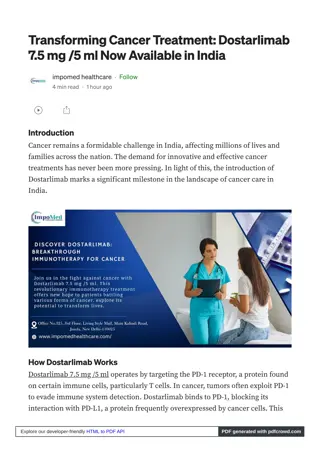

![[PDF⚡READ❤ONLINE] Black Hole Astrophysics: The Engine Paradigm (Springer Praxis](/thumb/21503/pdf-read-online-black-hole-astrophysics-the-engine-paradigm-springer-praxis.jpg)
